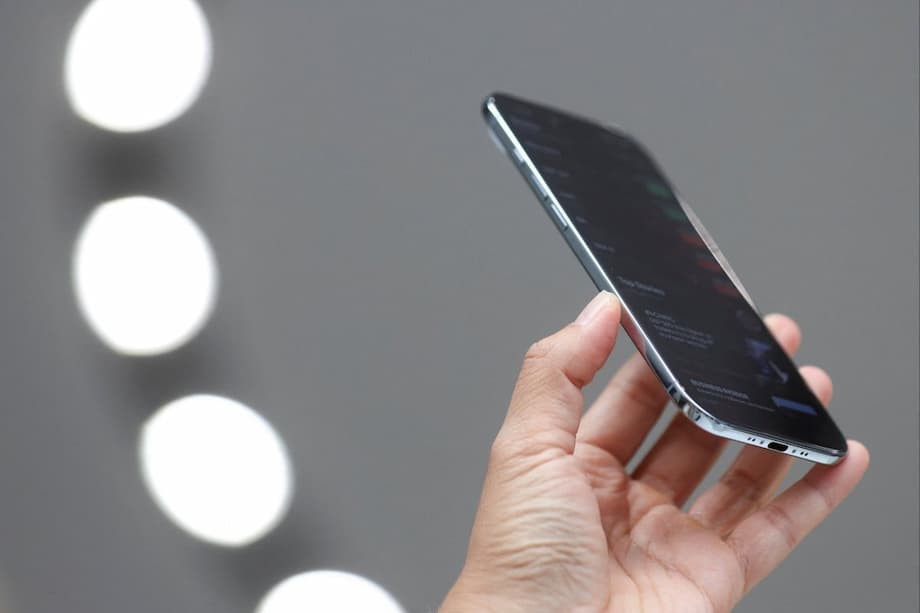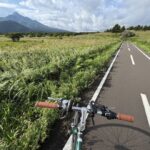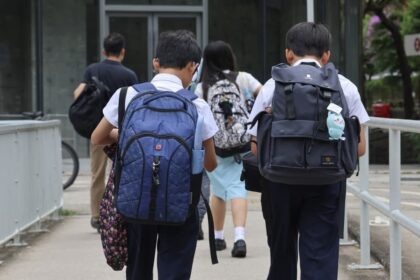A thin new iPhone meets China regulations
Apple has paused the mainland China launch of the iPhone Air, its thinnest iPhone to date, after the company and local wireless carriers did not yet secure final approval to offer the device with an embedded SIM, or eSIM. Hours before preorders were scheduled to open, Apple replaced the date on its China website with a notice that release information will be updated later. The rest of the iPhone 17 lineup remains on track, with preorders beginning Friday evening in China and deliveries slated for September 19. The change affects only the iPhone Air, which does not include a physical SIM slot and relies exclusively on a digital SIM profile provisioned by a carrier.
- A thin new iPhone meets China regulations
- What exactly is eSIM and why it needs approval in China
- How Chinese carriers are preparing
- Timeline changes, pricing, and what buyers can expect
- Why Apple bet on eSIM only for the Air
- Competitive landscape and consumer sentiment in China
- What comes next for approvals and rollout
- Key Points
Regulatory clearance is the gating item. Wireless carriers in China must obtain a license to sell and activate a new eSIM phone on their networks, and carriers have not yet finished that process for the Air. Apple says China Mobile, China Telecom, and China Unicom plan to support eSIM for the Air, but the timing is subject to government approval. China Mobile has said it has enabled eSIM services for mobile phones and will share a launch date separately. The iPhone Air measures 5.6 millimeters thick and starts at 7,999 yuan in China. Apple has told Chinese media that it is working with authorities to bring the device to market as soon as possible.
What exactly is eSIM and why it needs approval in China
An eSIM is a small reprogrammable chip built into the phone that holds your mobile service credentials. Instead of popping in a removable card, a carrier issues a digital profile that is downloaded and stored securely on the device. Users can add or delete plans, keep more than one profile, and switch lines in software. This approach saves physical space inside the phone, simplifies sealing against dust and moisture, and can reduce the number of moving parts.
In China, mobile numbers are tied to strict real name rules overseen by the Ministry of Industry and Information Technology (MIIT). Carriers must verify a customers identity and keep activation records that meet national security and anti fraud standards. Moving those controls from a physical card to a downloadable credential requires dedicated backend systems and formal authorization. Before a new eSIM phone can be activated at scale, Chinese carriers need regulatory sign off and often update their systems, retail processes, and mobile apps to handle identity checks and profile provisioning.
Identity checks and activation in practice
Until now, eSIM in mainland China has mostly appeared in wearables and some tablets, with limited support for smartphones. Apple previously relied on China Unicom for eSIM functions in other device categories. Bringing iPhone eSIM to the mass market means all three national carriers must implement consistent workflows. That can include scanning a government ID in a store, in app facial verification, or requiring a visit to a service center before a QR code is issued. The exact steps will vary by carrier.
Apple now lists China Mobile, China Telecom, and China Unicom as supporting eSIM for the iPhone Air, but each carrier still awaits regulatory approval for smartphone service. Until that approval lands, customers in mainland China will not be able to activate an Air using a local number.
Why Apple pulled the SIM tray
Apple positioned the eSIM choice as part of the Airs design priorities. Chief executive Tim Cook said the change created more room for power cells inside the device.
Tim Cook said the eSIM allows the device to have great battery life by extending the battery to areas that previously held the physical SIM card.
Removing the SIM tray also frees up internal volume for components, reduces cutouts in the frame, and simplifies water ingress protection. Apple already removed the SIM slot from iPhones sold in the United States two years ago. The Air is the first iPhone model with eSIM only availability worldwide.
How Chinese carriers are preparing
All three national operators have started signaling readiness. On social media, China Mobile told customers it has switched on eSIM services for mobile phones and that it will share launch details separately. China Telecom briefly posted that it aimed to start eSIM service on September 19, then removed the message. China Unicom has experience with eSIM from wearables and enterprise deployments. Bringing iPhone support across all three networks will require aligned timelines and consistent identity checks.
China Mobile described its status in a post on Weibo.
China Mobile said it has enabled eSIM services for mobile phones, and added that details regarding the launch date would be announced separately.
Once approvals are complete, carriers are expected to offer two paths. Customers can convert an existing number from a plastic SIM to an eSIM, usually by scanning a QR code or using a guided transfer inside the phone. New customers can obtain a fresh number as an eSIM without receiving a card. In both cases, real name verification rules still apply, and carriers may require an in person check or an authenticated online process.
Timeline changes, pricing, and what buyers can expect
Apples China storefront now says release information for the iPhone Air will be updated later. The company originally planned to open preorders on Friday evening and begin deliveries on September 19, the same date that still applies to the iPhone 17, iPhone 17 Pro, and iPhone 17 Pro Max. Customers set on the Air need to wait for further guidance, while those who prefer the other models can proceed with the existing schedule.
In China, the iPhone Air starts at 7,999 yuan. The device brings a new enclosure that measures 5.6 millimeters thick and removes the SIM slot to make room for a larger internal battery. It pairs with iOS features that help move a line from an older iPhone to a new one, including device to device eSIM transfer where supported by carriers.
A common question is whether buying an iPhone Air in another market will solve the issue. The answer is no. The Air does not support a physical SIM anywhere in the world, so a mainland China number still needs eSIM activation by a local carrier. Travelers and cross border shoppers can add a foreign eSIM for roaming, yet that will not replace a primary domestic line unless Chinese carriers receive approval to activate it.
When activation becomes available, customers should confirm with their carrier how to convert an existing number and whether a store visit is required. Backing up contacts, iMessage, and app data before a device switch is recommended. Apple and carriers often publish step by step guides, and retail staff in Apple Stores and carrier shops can walk customers through the transfer.
Why Apple bet on eSIM only for the Air
The Air continues a strategy that began with the iPhone 14 generation in the United States, where physical SIM trays were removed to push a full shift toward digital activation. Making the Air eSIM only worldwide lets Apple build a more uniform internal layout, expand battery capacity, and remove moving parts that occupy precious space in a very thin frame.
For users, eSIM can make life easier once networks are ready. Two lines can run on one device without juggling plastic cards, switching carriers becomes a software step, and travel data plans can be purchased on the fly from global providers. The flipside is that markets with limited eSIM readiness see friction during the transition. That is why coordination with national regulators and carriers is essential for a smooth launch.
Competitive landscape and consumer sentiment in China
Apple faces its toughest smartphone competition in mainland China, where domestic brands have pushed premium models and aggressive promotions. The company still commands strong interest among high end buyers, and its revenue in Greater China grew about 4 percent year over year last quarter. Demand for the Airs new design appears healthy, yet the launch pause could temporarily shift attention to the rest of the iPhone 17 lineup and to rivals marketing around September device releases.
Huawei and Xiaomi have been quick to spotlight camera hardware and local ecosystem integrations. Channel discounts and trade in bonuses are common in the weeks after new phones ship. A short wait for the Air is unlikely to alter long term trajectories, but it will test Apples ability to keep potential Air buyers engaged with store demos, hands on displays, and clear communication about timing.
Retailers and carriers are already adjusting messaging. Sales associates are steering launch day buyers toward the iPhone 17, 17 Pro, and 17 Pro Max, while advising Air enthusiasts to register interest and watch for alerts. The moment approvals are announced, preorders are expected to return quickly.
What comes next for approvals and rollout
The next step sits with the Ministry of Industry and Information Technology and the three national carriers. Each operator needs the required license to sell and activate the iPhone Air on its network. After that, Apple can switch on preorders in China and begin shipments. The company has signaled to Chinese media that approvals are expected soon, though it has not provided a date.
When the green light arrives, Apple typically pushes updated carrier settings through iOS, trains retail staff on the activation flow, and refreshes its support pages in Chinese. Carriers update their apps to allow eSIM conversion for existing numbers and step up staffing in service centers to handle identity checks.
Apple representatives in China framed the status succinctly, saying the company is cooperating with authorities to speed the launch.
Apple said it is working closely with regulatory authorities to bring it to China as soon as possible.
Key Points
- Apple postponed the iPhone Air launch in mainland China and removed preorder and release dates from its website.
- The iPhone Air is eSIM only, and Chinese carriers need regulatory approval to activate it on their networks.
- China Mobile, China Telecom, and China Unicom plan to support eSIM for the Air once approved.
- The iPhone 17, 17 Pro, and 17 Pro Max remain on schedule for September 19 in China.
- Tim Cook said moving to eSIM frees space for a larger battery inside the thin Air chassis.
- China Mobile said it has enabled eSIM services for mobile phones and will announce launch timing separately.
- The iPhone Air starts at 7,999 yuan in China.
- The start of sales depends on MIIT licensing and carrier readiness for identity verification and provisioning.












